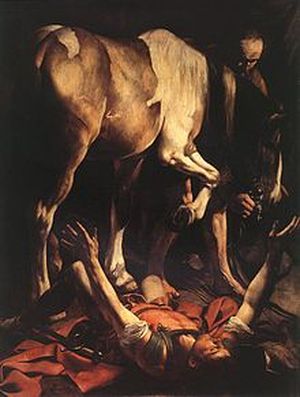
Were you listening to Today on Radio 4 at 8.10 this morning? If so, you'll have heard a moving interview with Henia Bryer, a Polish Jew who survived the Holocaust. You can hear the interview here - it's worth listening to.
This Sunday is Holocaust Day, and to mark this important occasion, Henia Bryer will feature in a BBC1 documentary at 10.25pm, Prisoner Number A26188: Henia Bryer. I don't expect it to be comfortable viewing, but I shall make watching it a priority.
The Holocaust is a stark example of human sin writ large; or, we might say, of what happens when human hearts are opened to evil, in this case on a massive scale. (I almost wrote 'inhuman' evil, but that would be to deny human responsibility for what took place.) Hatred of others because they differ from us or from our own ideals is perhaps the most corrosive force in the world, lying behind numerous acts of oppression, persecution and violence. Look at the news, and you'll see all too many examples at work.
Today in the church we mark the conversion of Saul, a man who hated the followers of Jesus and felt justified in persecuting them - until he was arrested by the light of God on the road to Damascus. Transformed and penitent, he became St Paul, one of the most influential Christians in history. It's a reminder that there's hope of redemption even for the most hardened of oppressors. It's also a reminder to be honest about our own capacity to sin, even and perhaps especially when we think we're standing up for self-evident truths. Indeed, it's the issues we see in terms of black and white which present the greatest dangers, when our prejudice can threaten to override human rights and the due process of law.
Back to the interview with Henia Bryer, I was struck by one of the questions posed by John Humphrys:
'All of these things that matter to ordinary people, really, in the great scheme of things...must seem almost trivial...?'
That set me thinking: ordinary life is so often trivial and mundane. But that's one of the important things about it - it's part of the freedom which matters so much to us, an aspect of the security which we need. And such freedom and security are denied, not only to the oppressed, but also to those who oppress them - whatever ideology they live by.
This Sunday is Holocaust Day, and to mark this important occasion, Henia Bryer will feature in a BBC1 documentary at 10.25pm, Prisoner Number A26188: Henia Bryer. I don't expect it to be comfortable viewing, but I shall make watching it a priority.
The Holocaust is a stark example of human sin writ large; or, we might say, of what happens when human hearts are opened to evil, in this case on a massive scale. (I almost wrote 'inhuman' evil, but that would be to deny human responsibility for what took place.) Hatred of others because they differ from us or from our own ideals is perhaps the most corrosive force in the world, lying behind numerous acts of oppression, persecution and violence. Look at the news, and you'll see all too many examples at work.
Today in the church we mark the conversion of Saul, a man who hated the followers of Jesus and felt justified in persecuting them - until he was arrested by the light of God on the road to Damascus. Transformed and penitent, he became St Paul, one of the most influential Christians in history. It's a reminder that there's hope of redemption even for the most hardened of oppressors. It's also a reminder to be honest about our own capacity to sin, even and perhaps especially when we think we're standing up for self-evident truths. Indeed, it's the issues we see in terms of black and white which present the greatest dangers, when our prejudice can threaten to override human rights and the due process of law.
Back to the interview with Henia Bryer, I was struck by one of the questions posed by John Humphrys:
'All of these things that matter to ordinary people, really, in the great scheme of things...must seem almost trivial...?'
That set me thinking: ordinary life is so often trivial and mundane. But that's one of the important things about it - it's part of the freedom which matters so much to us, an aspect of the security which we need. And such freedom and security are denied, not only to the oppressed, but also to those who oppress them - whatever ideology they live by.
 RSS Feed
RSS Feed